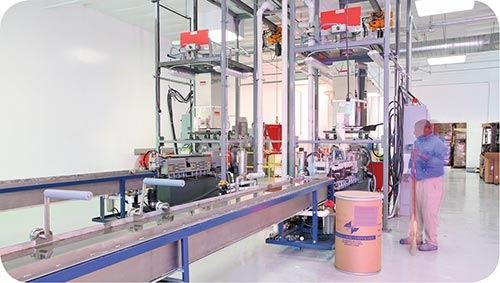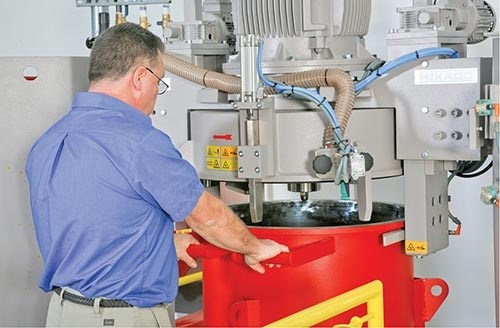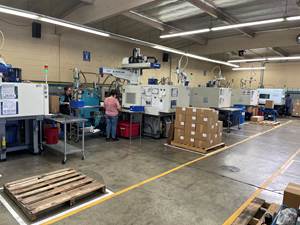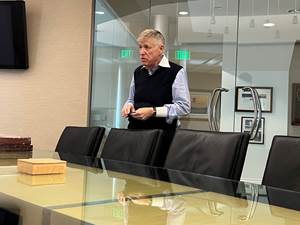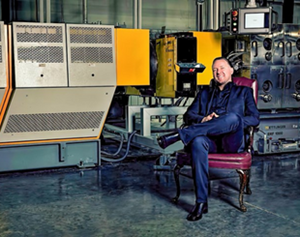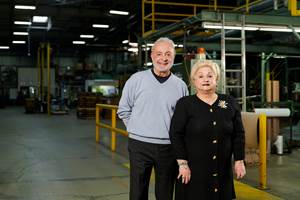A Pioneer in ‘Clean Compounding’
When Plastics Color Corp., based in Calumet City, Ill., established a new compounding plant in Southern California, the firm decided this couldn’t be an ordinary color/additive masterbatch facility.
When Plastics Color Corp., based in Calumet City, Ill., established a new compounding plant in Southern California, the firm decided this couldn’t be an ordinary color/additive masterbatch facility. The new PCC plant in Sun Valley opened in January and is aimed at a regional clientele consisting largely of makers of food and pharmaceutical packaging and medical devices. Such customers ensure high levels of cleanliness and purity in their own products, so it made sense that they would want the same care to be taken in producing masterbatches that go into their products.
As there are no standards yet for “clean compounding,” PCC had to chart its own course, helped by suggestions from customers. Sun Valley was to be PCC’s first top-to-bottom “clean” facility, but it could draw on its experience in establishing a “plant-within-a-plant” clean operating area at its plant in Asheboro, N.C., in 2009. A team from Asheboro was brought to Sun Valley, led by project engineering manager Alan Abrams, who designed the new plant.
The 30,000-ft² plant currently has two Coperion twin-screw compounding lines capable of 1 million lb/yr, though there’s room to quadruple that capacity. Only FDA-approved additives are used here, and no black products (they’re made in Calumet City).
The emphasis on cleanliness at Sun Valley starts with white walls and ceiling, plus 24 skylights that illuminate the plant with nearly twice the brightness of a standard manufacturing facility. Dirt has no place to hide.
The manufacturing area is kept at a positive air pressure, with airlock doors. Employees wear shoe protection and clothing with no cuffs or folds to catch pellets or dirt, and no jewelry. No wood pallets or cardboard are allowed in the production area.
Two of the main technical features of this “clean” plant are filtration for air and process water. All water from the pelletizing lines passes through a 5-micron filter and is exposed to UV light to kill microbes. Plant air is filtered through a water curtain, an evaporative cooling system in which a film of water flows by gravity over a fine mesh. Passing through this curtain, air is cooled and particulates are removed. After startup, the lines run completely automatically. “Hands never touch the material before it is sealed in the bag,” says Joe Byrne, vp of sales and marketing.
An important factor in minimizing raw-materials handling for both cleanliness and efficiency is the use of a Mixaco batch-mixing system. “We used to move materials through the plant in several steps and by hand. Now we weigh, mix, and transport material in the same vessel,” says Byrne. “It’s a single point of contact for raw materials,” adds Abrams. After mixing, the vessel is disengaged from the mixer, covered, and wheeled over to the extrusion line, where it is hoisted up onto a mezzanine atop a gravimetric feeder.
Among other benefits, the mixing bowls can be cleaned easily and comfortably in just 11 min, vs. 45 min for previous mixing systems. “We’re getting that time down even further,” notes Abrams. (Mixaco USA is in Greer, SC; mixaco.com.)
“There’s definitely a ‘Wow’ factor when customers visit this plant,” says Tim Workman, director of business development. “They’ve never seen a compounding plant that looks like this.” He adds that though Sun Valley is not yet a true clean-room facility, “We’re ready to go to the next step when the market demands it.”
Related Content
Back in the Family Business
In its 45th year, Precision Molded Plastics has carved out a technology and market niche, growing not just when opportunities arise but when they make sense, after its leader changed careers to keep the family business from changing hands.
Read MoreUS Merchants Makes its Mark in Injection Molding
In less than a decade in injection molding, US Merchants has acquired hundreds of machines spread across facilities in California, Texas, Virginia and Arizona, with even more growth coming.
Read MoreA Recycling Plant, Renewed
Reinvention is essential at Capital Polymers, a toll recycler that has completely transformed its operation in a short period of time.
Read MoreGeneration Gap? Not at Packaging Personified
Started at a kitchen table and now in its third-generation of family involvement, this vertically integrated supplier of flexible packaging traces its success to closely aligning with customers and continually investing in new technology across its films, printing and converting operations.
Read MoreRead Next
Beyond Prototypes: 8 Ways the Plastics Industry Is Using 3D Printing
Plastics processors are finding applications for 3D printing around the plant and across the supply chain. Here are 8 examples to look for at NPE2024.
Read MoreMaking the Circular Economy a Reality
Driven by brand owner demands and new worldwide legislation, the entire supply chain is working toward the shift to circularity, with some evidence the circular economy has already begun.
Read More

